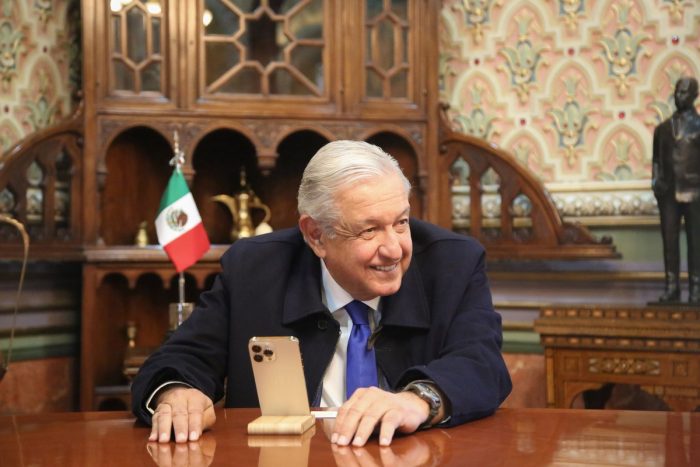
In Mexico, social media isn’t the major driver of political misinformation it’s often believed to be, according to a new study in the International Journal of Press/Politics.
Researchers Sebastián Valenzuela, Carlos Muñiz, and Marcelo Santos found “no significant correlation between using Facebook, Twitter, YouTube, Instagram or WhatsApp as news sources and belief in political misinformation.”
Valenzuela, Muñiz, and Santos conducted the study in two phases during Mexico’s midterm elections in 2021. The first phase had 1,750 respondents, 596 of whom were re-interviewed for the second phase.
In the first phase, researchers presented respondents with four false claims that had circulated during the election season, and then another three in the second wave. Respondents were asked to indicate their level of endorsement of each statement on a scale of 1 (not at all) to 5 (completely).
To understand how people use social media platforms for news, the researchers measured how often during one week respondents used Facebook, YouTube, Instagram, and WhatsApp to get national news. They also looked at three control variables: “traditional news media use and political discussion; political interest, efficacy, presidential approval, and ideology; and political knowledge, news elaboration, information literacy, and digital skills.”
“This [study] was trying to answer a very basic question, which is how exposed are Mexicans to misinformation on social media? And how persuaded are they by the misinformation they are exposed to on social media in terms of their political beliefs?” Valenzuela explained. “[Our] finding is that there’s no relationship. That means that people who use more or [fewer] social platforms for getting their news about the election, that was not related whatsoever to how misinformed their beliefs were. In a way, that goes against the popular narrative that misinformation is something that is created [on social media] or that social platforms are going to be the big culprits here.”
This doesn’t mean misinformation isn’t a problem in Mexico, though, Valenzuela said. While the researchers didn’t find a direct link between social media use and misinformation, they did find that people who engage more frequently in political discussions — particularly in face-to-face conversations — were more misinformed than those who engaged less frequently in political discussions.
“What is it about talking that is making people become more inaccurate in their beliefs and their assessments?” Valenzuela said. “That goes against the idea of conversation being the soul of democracy, which is the idea that informal deliberation makes people more enlightened. What we found was the opposite.”
Mexico provides fertile ground for this study, the researchers explained in the report:
In Mexico, online disinformation campaigns are regularly deployed during elections since at least 2012. Candidates have used bots and paid trolls to spread fabricated polls to boost a candidate’s standing (Armstrong 2018). The effort to group together more than eighty organizations of different nature to tackle misinformation during the 2018 presidential election is but a symptom of the magnitude of the problem That year alone, 43% of online users in Mexico reported exposure to misinformation, compared to 31% in the United States and 15% in the United Kingdom.Researchers have documented other mechanisms by which political misinformation is spread on social media in Mexico. There is “attention hacking,” such as the amplification of support for controversial government initiatives by bot networks and political campaigns that create a false universe of ghost followers, trolls and bots in favor of one candidate or another. During the 2018 elections, bot battles pro and against the winning candidate Andrés Manuel López Obrador (AMLO) drowned out conversations by posting attacks, rumors and unsubstantiated claims at a rate of more than one thousand tweets per hour. It is also common to observe so-called algorithmic repression (i.e., the sabotaging of dissident trending hashtags on Twitter such as #YaMeCanse [translated as #IHaveHadEnough], which forces activists to deploying counter-tactics like changing the hashtags (e.g., #YaMeCanse2, #YaMeCanse3). Among other problems, these tactics create public confusion.
Mexico has also experienced a steep decline in news media trust, which can make it harder for journalists to effectively counter misinformation. Between 2017 and 2021, media trust dropped 12 percentage points to 37%. Though traditional outlets such as the duopoly TV Azteca-Televisa News are still the most popular broadcasters, they are less trusted than international outlets and new digital-native media. This can also be traced back to Mexico’s “captured” liberal media system, where private news media are closely aligned with the political and economic elites and public service broadcasting plays a minor role. Thus, the country may have limited capacity to counter misinformation.
The study also found that Mexicans who had more digital skills (like searching for news, using social media platforms, and sharing content) tend to be more misinformed than people with fewer.
“It might be kind of an unintended consequence of having more skills that you will be exposed more frequently to fake news,” Valenzuela said.
For journalists, these findings can mean a number of things. First, Valenzuela said, social platforms are still powerful tools that journalists and media companies can use to communicate factual information.
Valenzuela also said Mexico’s large socioeconomic gap leaves plenty of room for digital and information literacy gaps as well. Just because people are online doesn’t mean that they know how to navigate the media ecosystem. News outlets, Valenzuela said, should invest not just in understanding what news consumers want, but also in understanding what their information literacy capabilities are.
“If you invest in trying to bridge that gap…you have a higher likelihood of reaching more people and you have a higher likelihood of maintaining or even increasing the number of people who pay attention to your work.”
Read the full study here.